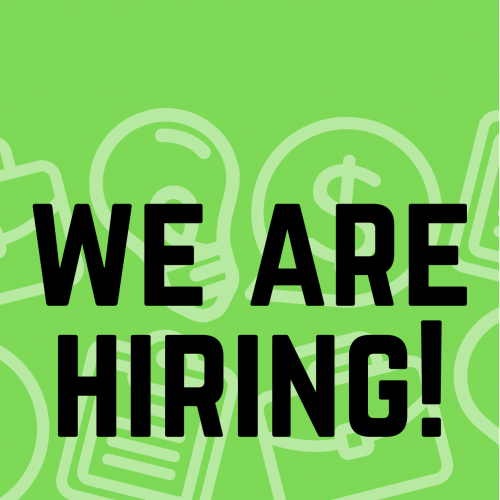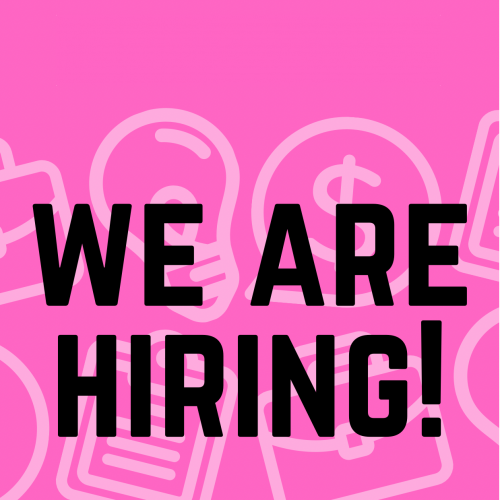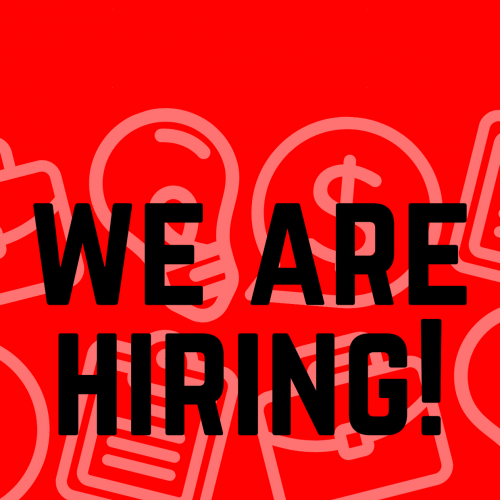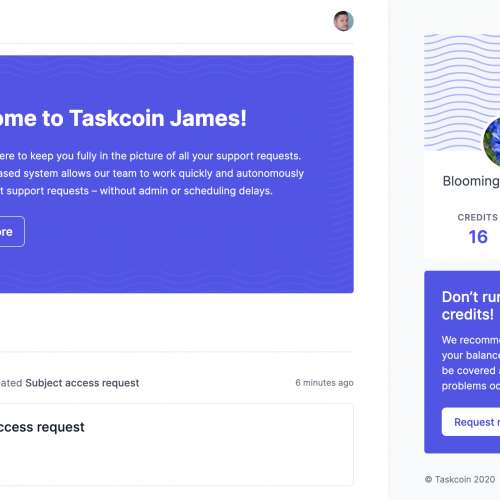‘Disruptive’ is possibly one of the most used buzzwords in the tech startup world. It’s often used to describe ‘groundbreaking’ or ‘brand new’ technology that solves problems faced by the masses – or something that ‘shakes up’ an existing industry.
The fear of being unoriginal in an innovation-obsessed society can be paralysing
Of course, we can’t argue that the invention of the World Wide Web, of mobile phones and social media for example – all of which dramatically changed the way we communicate and share information – are not ‘disruptive’.
Yet, in a world where it’s so easy to build on technology, it’s now almost impossible to have a truly original idea. And where we’re constantly describing businesses as the ‘Netflix of X’ or ‘Uber of Y’, it can be hard to know – particularly as a new startup – if being ‘disruptive’ is something really worth striving for.
As Melanie Axman from Business Insider puts it: “The fear of being unoriginal in an innovation-obsessed society can be paralysing. We regularly strive to be different in order to compete for profit and success. The irony is that nothing we say or do derives from an original place.”
People, product and potential
At the end of 2017, a new index was launched in Bristol called Disrupt South West that ranked 25 of the region’s most disruptive technology businesses. The list included the likes of Simpleweb investees W2 Global Data and Ordoo.
We loved that businesses from our our investment portfolio had been included in the list and could be considered a part of this prestigious movement. But it also got us asking questions.
A startup such as mobile food-ordering startup Ordoo is not necessarily a disruptive technology. But it works, and if it gets mass adoption and causes other companies to lose market share then it has definitely disrupted its market.
Radical innovations completely transform the way firms engage with the marketplace
So is it really that useful to consider startups like these to be ‘disruptive’? Is what it means to be ‘disruptive’ changing?
Research from Professor Glenn Parry at the University of the West of England suggests this is the case. He tells us: “My take on disruption is focussed on the business model. I expect to see a change in the three core elements of value proposition, the use of the offer in context by the customer, and the way in which value is captured. For me, that is disruption versus some mild change or development of a current process.
“Uber and Airbnb are interesting and I perceive them as disruptive following my definition in the business context. Many people say they disrupt when they innovate – but those innovations may only lead to an incremental change (though it may have a significant effect).
“For example, the CD is an innovation that moved us from vinyl to CD. However, the business model doesn’t change – the seller sells a unit to a consumer at a fixed cost, usually in a shop, then the consumer listens at home on a device. Digital is disruptive. Seller sells access to music. User listens via portal using numerous devices. Payment may be a subscription. All three elements change.”
Transforming experience
Recent analysis of over 40 years worth of research by journalists at the Harvard Business Review has also identified some interesting differences between two forms of ‘disruption’. Radical innovation being where the technology comes first and disruptive innovation in which innovators piggyback onto existing technology, breaking down traditional business models in the process. “Radical innovations completely transform the way firms engage with the marketplace, and they require completely new technical skills and organisational competencies by firms pursuing this path.”
Sometimes what you’re doing is offering an opportunity
So really, when we’re looking at disruption today, we’re looking at basic business fundamentals. You can innovate as much as you like, but unless you create something that triggers more than mass adoption, that changes business models, it’s never going to disrupt.
As Seth Jackson, founder of Landmrk commented in a recent interview: “When I was running Indie Mobile, it was an absolute certainty that all full-track music was going to be controlled by the mobile operators. Everyone knew that that was definitely the thing that was going to happen and then iTunes turned up and spun everything on its head.”
What happened was that iTunes created a better experience for the user – enough so that it drove mass adoption first and, where this began the move to online and subscription-based platforms, disruption to the music industry second.
“If you look at what’s happened with VR and AR in the last decade, hardly anything has changed.” Seth adds.
“I think the next 18 months there will be lots of change but in the past 8-10 years, really you’re still looking at 3D dancing objects and big clunky headset experiences. So the change has not come there that anyone predicted – because you didn’t have the hardware there or the user behaviour.”
Disrupting disruption
Now we’re at a place where lots of startups are attempting to disrupt using these same mechanisms. So perhaps now what we need to be talking about is how we can disrupt disruption.
“Disruptive I think can sometimes be seen as quite a negative or easy go-to for any technology that’s new and that’s changing the way things are done. But I’m not sure it’s that helpful a term because truly disruptive stuff IS disruptive. And then there’s a whole balance of other things which are just tagged with that same term”, Seth explains.
“It doesn’t make [tech startups] any less important. They are making change and supporting changes that are already happening. They are enabling those changes to be better. I guess it comes back to that same thing where everyone goes ‘what huge problem are you solving as a startup?’ And sometimes you’re not necessarily solving a problem. Sometimes what you’re doing is offering an opportunity.”
When working with early-stage startups, we’re straight-talking when it comes to potential – and driven by experience in proving that an idea is viable. To describe an idea or product as ‘disruptive’ can have entrepreneurs almost skirting over this important part of the journey in favour of the honeymoon excitement phase we’ve seen with technology such as VR in the past.
Building successful technology businesses with the potential to ignite positive and purposeful impact on the world cannot be produced with a magic wand – it requires iteration after iteration, failure as well as success and predictability as well as flexibility. An idea is the seed, it’s the people that provide the transformation effects of growth. And that’s what we’re all about here.
[Photo by Tracy Thomas on Unsplash]
To apply for investment for your early-stage startup, just fill out this application form.



